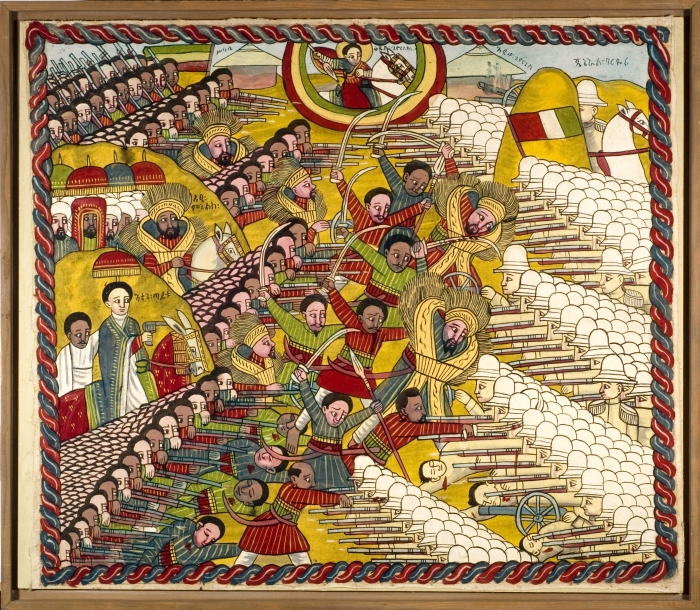To accompany the launch of The Lost Spell by Yismake Worku in English, we relate some neglected history
The Lost Spell by Yismake Worku (tr. Bethlehem Attfield) is the tale of a businessman who turns himself into a dog whilst dabbling in the occult. But the journey he is forced to make through the Southern Ethiopia of 2012 also serves British readers very well as an introduction to the country, its history and its stories. The present depicted is an uneasy settlement with Chinese and European industry, while the past is populated by chastened Italian and Victorian invaders. Ancient figures, like Queen Yodit and the sorcerer Akilas also make their appearances.
Yet for many British or American readers, the Live Aid concerts of 1985 (to raise money to alleviate Ethiopian famine) may be the only historical connection they remember. And rehearsing a connection where “we” helped “them” in isolation has the potential to be frustrating; a point we confirmed by putting it to Ethiopian Londoners we know in Dalston. Partly this is due to it being so atypical; any student of Ethiopian or Abyssinian history will recognise the recurring theme of independence.
So here we include a short list of historical connections between Ethiopia/Abyssinia and the English speaking world, some of which find mention in the novel. For further reading, a lifetime could be well spent on the shelves of L.A. based Tsehai Publishers. Or now, thanks to Bethlehem Attfield’s translation, we can journey from Yirgalem to Addis Ababa through the eyes of a dog.
- British people may be surprised to learn that the Pankhurst family are widely known in Ethiopia. Sylvia was a campaigner against appeasement of the Italian Fascist invasion (1936-41), in which Mussolini used chemical weapons. Her son Richard became a professor at the University of Addis Ababa.
- Italy attempted to enlarge its colonies in the Horn of Africa once before, declaring Ethiopia a “protectorate.” At the Battle of Adwa in 1896, Menelik II defeated Italy.
- The poet Rimbaud lived in Harar between 1880-1891, after quitting London and literature. Here he was a merchant selling coffee and weapons, including second-hand rifles to Menelik II.
- Emperor Tewodros II established a foundry at Gaffat, developing modern artillery with the help of mainly German, Polish and English arrivals to Abyssinia (often deserters or mercenaries). Tewodros II wrote to Queen Victoria, proposing a military alliance, but his letters were ignored. Facing civil war, he took European hostages, which led to the massive invasion of 1868 led by General Napier.
- Walter Plowden (British Consul) and Captain Speedy were two Victorian “adventurers” who became close to Tewodros II. Speedy became Napier’s advisor and translator, and was to become guardian to Tewodros’ son Prince Alemayehu, who was orphaned by the British invasion and abducted. He died of pleurisy aged 19. The retention of the Prince’s remains and the treasures looted from Magdala fortress by Britain is a subject of protest.






